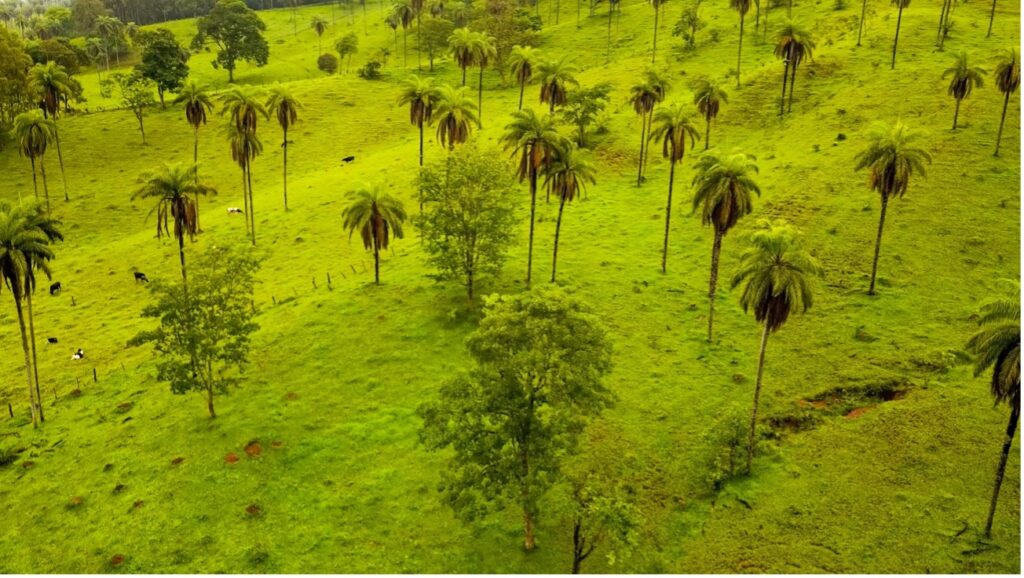Initiative aims to restore areas of habitat in Pará through agroforestry schemes within the scope of Vale’s 2030 Forest Goal

Fundo Vale has formed a new partnership with Inocas to boost the macaúba timber production chain as a way to restore degraded pasture areas and promote the sustainable production of biofuels, oils for cosmetics and other products derived from macaúba, a palm tree native to Brazil. The initiative entails implementing agroforestry systems in areas of Pará and supporting knowledge solutions involving macaúba research and development, as part of a strategy to scale up the business and expand its impact. This support is related to the ecosystem strengthening strategy component of Vale’s 2030 Forest Goal, which provides for support and partnerships to build and share knowledge about sustainable systems.
Growing demand for vegetable oils, driven by the production of biofuels, has had an impact on deforestation as new croplands are opened up to meet this demand. In this context, macaúba is emerging as an alternative that excludes the need for deforestation or other changes in land use. Each hectare of macaúba is capable of removing and storing around 25.75 tons of atmospheric CO2 per year, a key factor in mitigating climate change, according to an Inocas projection.
“We are excited once again about our partnership with Fundo Vale, which reflects our commitment to sustainable macaúba cultivation and will expand our positive impact on communities,” said Inocas’ CEO, Johannes Zimpel. The startup’s financial director, Ramon Carvalho, added, “This partnership also shows how Brazil is fertile ground for social and environmental impact projects, serving as an example for the market of how to invest sustainably.”
The strategy covers the entire macaúba value chain, from the genetic selection and germination of seedlings to the processing of the fruit, in order to make oil from the pulp and kernels. This oil will then be used by the biofuel, cosmetics and food industries. To implement the project, Inocas is establishing partnerships with small and medium-sized farming families, extractive producers and cooperatives.
Inocas’ history with Fundo Vale began in 2020, when the startup was accelerated by the Agroforestry Challenge open innovation program. In 2021, Inocas was selected to be part of the Forest Goal portfolio, having planted 1,430 hectares that year in the Cerrado Savanna and Atlantic Forest biomes. Now, the two organizations are once again partnering to implement macaúba agroforestry systems with a focus on the Amazon Rainforest biome.
Inocas is contributing to Vale’s 2030 Forest Goal, a voluntary commitment to protect 400,000 hectares of forests and restore 100,000 hectares of habitat outside the company’s mining sites by 2030. To restore these areas, Vale relies on Fundo Vale, which makes innovative investments and accelerates businesses with the potential to gain scale, based on crop farming, cattle ranching and forestry practices that combine different types of crops and management systems and can generate environmental, social and economic impacts. “As well as boosting the bioeconomy and generating oils and other products to make the biofuel, food and cosmetics industries more sustainable, this Inocas project integrates macaúba with agricultural crops and pastureland for meat and milk production, resulting in diversified production that benefits small and medium-sized producers. This is the kind of initiative that we are prioritizing to meet Vale’s 2030 Forest Goal. While we restore habitat and increase carbon sequestration, we are also generating positive social and environmental impacts at various levels,” said Gustavo Luz, Fundo Vale’s executive director.
